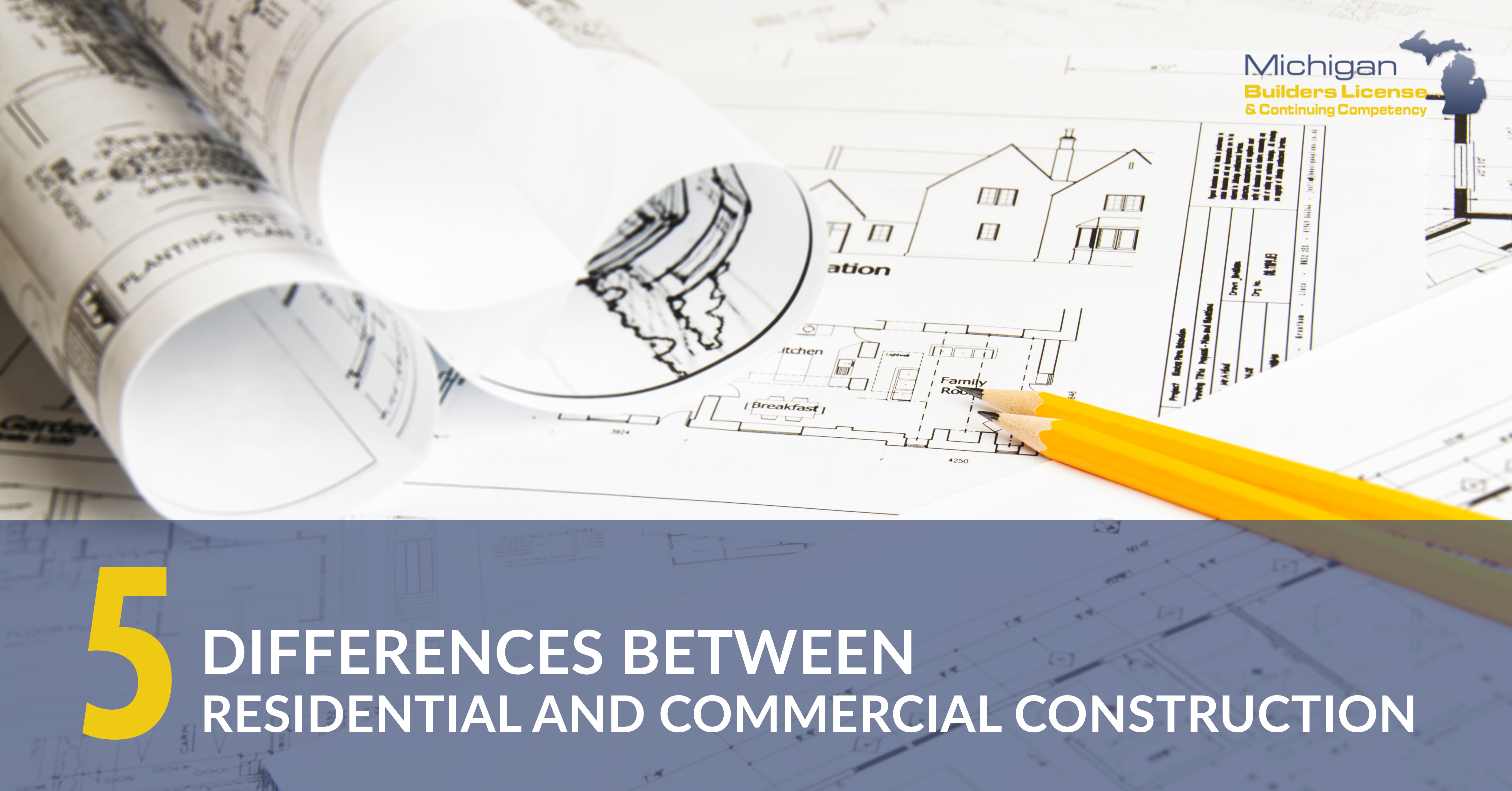As you begin or expand your career in construction, you’ll naturally gravitate towards residential or commercial building, depending on your specific skill sets and preferences. There are five main differences between the two types of construction that you’ll need to consider to determine the best fit for you.
First, let’s define residential vs. commercial.
Residential refers to buildings that will be lived in, including single-family homes, duplexes, triplexes, fourplexes, townhouses, and condominiums.
Commercial refers to any building for business use, including hospitals, large multi-family housing projects, office buildings, retail space, industrial buildings, and storage units.
When considering which type of construction projects you’d like to take on, you’ll explore the five main differences between them:
- Materials Used
- Budgets
- Codes & Permitting
- Deadline Expectations
- Types of Equipment Used
The scope, size, and difficulty of residential building projects vary significantly from commercial building projects, and you may find that you are better suited for one over the other.
1. Materials Used
Residential building projects are typically on a much smaller scale than commercial projects. They use timber frames rather than steel. The budget will play a huge role in what materials are used in residential projects in order to make them feasible. The quality of materials will play a very large role in commercial projects in order to ensure they are safe and sturdy.
2. Budgets
The budgets and costs for residential projects differ from those for commercial buildings. Project costs are made up of:
- Materials
- Specialized equipment
- Number of workers
- Quality of workers
- Overhead
- Compliance Maintenance
Commercial construction projects are awarded through a bidding process and are typically funded by a developer, government agency, or corporation.
Residential construction projects are more often contracted through word-of-mouth or referral. Homeowners pay for the project with cash, a bank loan, an insurance loan, or through a non-profit organization.
3. Codes & Permitting
Commercial buildings must adhere to strict codes and permitting requirements, more so than residential buildings. Local and federal building regulations must be met, as well as more elaborate safety protocols concerning IT, elevators, handicap accessibility, and parking garages.
4. Deadline Expectations
Commercial builders can often complete their projects incredibly quickly, resulting in considerable savings in labor and allowing the company to move on to the next large-scale project.
Residential builders tend to take longer with each project due to fewer workers on-hand, taking on multiple projects at once, and homeowners often making changes throughout the building process.
5. Types of Equipment Used
The sometimes massive scale of commercial construction projects requires specialized equipment, increasing costs, and requiring highly skilled laborers.
Residential projects rarely require the same high investment in equipment.
While you may be qualified to work on both residential and commercial building projects, you may find that you enjoy one type of work over another, or your personal skill set is better suited to one type of project over the other.





